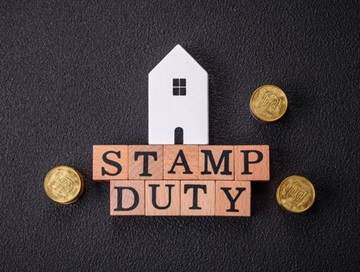As COVID-19 restrictions begin to ease, it's easy to wonder if things will ever go back to the way they were.
For some things it may, but for the real estate industry and for many other industries the effects are far-reaching, but this doesn't necessarily mean that's a bad thing.
We spoke with John Percudani, Managing Director of Realmark Real Estate Group who believes the real estate industry has been and will continue to be challenged by the impacts of COVID-19.
Here are a few ways the real estate industry has adapted to COVID-19.
1. A more open-minded approach
Mr Percudani believes there will be an overall change to real estate agencies who will have to invest in adapting their working environment, practices, tech products and the upskilling of talent.
"However, it has highlighted our sluggishness to let go of traditional mindsets and practices," he said.
"From our experience, due to the financial and implementation challenges these adaptations require, it makes good sense for brands with similar values to merge or corporate to create more robust and efficient operation and the decentralisation of capital risk.
"At Realmark, we also expect that the financers will focus increasingly on cash flow and especially the balance sheet of the business, to ensure there is adequate "shock absorption capacity" in the event of further trading disruption.
"Due to the sentiment of caution and in some cases shock created by COVID-19, employees and clients alike will, as things settle and reset, increasingly align to well resourced, proven and trusted brands. We also anticipate increasing local support for WA owned and operated brands," Mr Percudani said.
2. Virtual home opens/inspections and auctions
With restrictions on public gatherings announced on 24 March 2020, this forced real estate agencies to change the way they conduct hope opens, auctions and inspections - mostly going online and virtual.
According to Mr Percudani, Realmark had already made the virtual switch in the way they communicate and operate to accommodate working remotely across property management, strata and sales which he said made the transition a lot easier.
"Being able to do things like virtual inspections is expected by clients. Some agencies have quickly embraced these options and then advocated them as a new differential, but they are not. Clients are now increasingly seeking service providers that can deliver these capacities as part of their DNA and combine it with fact based and structured solutions."
As the restrictions to home opens lift with 10 people allowed at home opens again, Mr Percudani said within the sales area he did not expect that online auctions and virtual home opens will endure to the current level and there will be a quick return to on site auctions and home opens.
3. Property tech and products
Another major shift within the real estate industry was the quick turn around of new property apps and technology - all making it easier for people to continue real estate.
Mr Percudani said that the skill and knowledge that his Realmark team had with real estate products was vital in ensuring transactions continued smoothly.
"The well-established skill Realmark agents had in using the set date sales method combined with the RESO, an online transaction management system, was invaluable to achieving transactions," Mr Percudani said.
"Embracing new tech solutions will be an ongoing focus for the real estate industry, together with a renewed refinement in workflows. This will combine with an increased freedom to let go of legacy business practices and models."
4. Social media and online marketing
With consumer confidence rattled as a result of COVID-19, online marketing and sales has had to become more customer targeted to adapt to anxieties felt by tenants, landlords, investors and buyers.
"Online marketing will be further entrenched, however expertise on how to utilise these mediums to better advantage will be required," Mr Percudani said.
According to Mr Percudani, property management was initially highly challenged by tenant and lessor anxieties, especially whilst new processes or codes where advanced to help deal with demands.
"Sales and leasing has been shocked by the fall in transaction opportunities and the restrictions on prospecting and property inspections," Mr Percudani said.
The way agencies now market themselves online will be a driving force in restoring confidence back into the market.
It is clear there has been a general adaptation by the real estate industry and this should continue to be shaped as the effects of COVID-19 linger.
"Buyers, sellers and investors may expect sales agents and property managers to be more informative and they will have a more cautious approach to transacting due to being more sensitive to risk," Mr Percudani said.
More information
Visit reiwa.com AgentFinder to connect with a local REIWA agent and find out how they have adapted to COVID-19.
.tmb-imgwidgetm.jpeg?sfvrsn=3f66de66_1)





.tmb-rcarousel.png?sfvrsn=3619a769_1)
.tmb-rcarousel.jpg?sfvrsn=24ed8b20_1)


